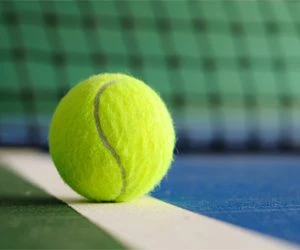BBC, Buzzfeed report uncovers suspected match-fixing in tennis

UK public-service broadcaster the BBC and US-based internet media company Buzzfeed News have uncovered files that expose evidence of widespread suspected match-fixing at the top level of professional tennis.
According to a joint report, over the last decade, 16 players who have ranked in the Association of Tennis Professionals’ (ATP) top 50 have been repeatedly flagged to the Tennis Integrity Unit (ITU) over suspicions that they had thrown matches.
All players in question, including winner of Grand Slam titles, were allowed to continue competing at the top level of the sport.
The BBC and Buzzfeed said that the uncovered documents include the findings of an investigation set up by one of the sport’s global governing bodies, the ATP, in 2007 to look at suspicious betting activity during a match between Nikolay Davydenko and Martin Vassallo Arguello.
Although both players were cleared of any violations, the probe developed into a wider enquiry that looked at a network of gamblers linked with leading players.
Documents are said to show that the enquiry found betting syndicates in Russia, northern Italy and Sicily were able to make hundreds of thousands of pounds by betting on matches investigators thought to be fixed – three of which were at the UK Grand Slam event, Wimbledon.
Other findings from the joint BBC-Buzzfeed report include a recommendation from the enquiry team to investigate matches involving 28 players named in the initial investigation, although this was never followed up.
In addition, the TIU received more alerts about approximately a third of these players, but none were disciplined by the unit.
The BBC and Buzzfeed were also passed the names of other current players that the TIU has repeatedly been warned about by betting organisations, sports integrity units and professional gamblers.
However, the media outlets opted not to reveal the identities of such players as “without access to their phone, bank and computer records, it is not possible to determine whether they may have been personally taking part in match-fixing”.
The TIU does have the authority to demand all this evidence from any player.
Chris Kermode, head of the ATP, said: “The TIU and the tennis authorities absolutely reject any suggestion that evidence of match-fixing has been suppressed for any reason or isn’t being thoroughly investigated.
“And while the BBC and BuzzFeed reports mainly refer to events from about 10 years ago, we will investigate any new information, and we always do.
“In its investigations, the TIU has to find evidence, as opposed to information, suspicion or hearsay. This is the key here: that it requires evidence.”
Mark Phillips, one of the betting investigators that took part in the 2007 enquiry, also told the BBC that the probe discovered repeated suspicious betting activity about a select group of players.
He said: “There was a core of about 10 players who we believed were the most common perpetrators that were at the root of the problem.
“The evidence was really strong; there appeared to be a really good chance to nip it in the bud and get a strong deterrent out there to root out the main bad apples.”
Sports integrity unit ESSA, which reported widespread cases of suspicious betting in tennis over the course of 2015, said in a statement: “Anything that undermines the confidence and integrity of sport is not only damaging for sport itself but is potentially serious for the betting industry too.
“It is for this reason that ESSA continues to support tennis and any other sport in supporting the implementation of good governance and integrity regimes.”
Related article: ESSA reveals decrease in suspicious betting during Q3
